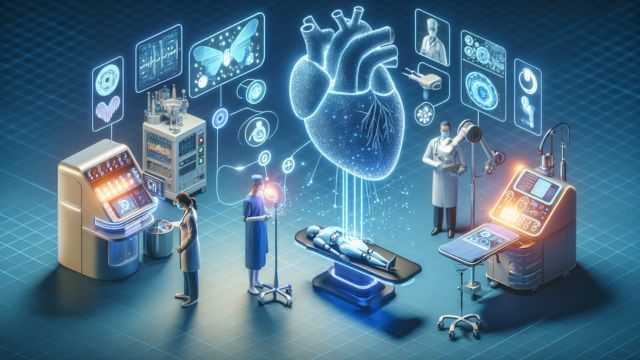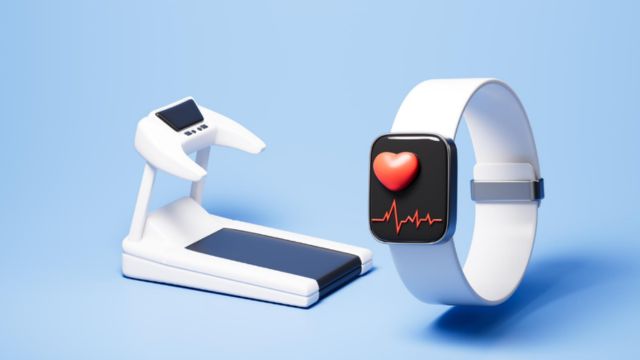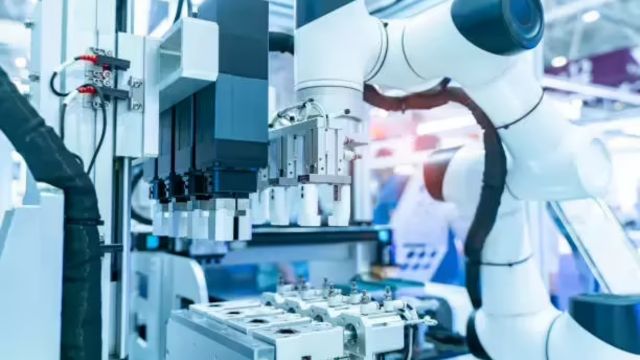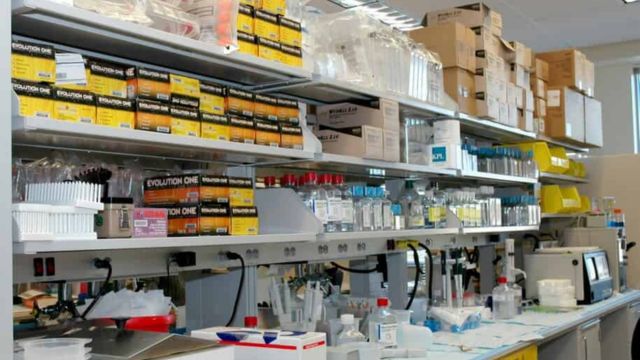Particularly in the context of medical supply management, artificial intelligence (AI) and machine learning (ML) are becoming ever more important in the fast changing healthcare scene of today. These tools are transforming how hospitals manage inventory, guarantee prompt replenishment, project demand, and maximise their whole supply chain activities.
Let’s investigate how artificial intelligence and machine learning are changing medical supply management as well as the direction of the healthcare sector going forward.
1. Improved Demand Forecasting
Forecasting demand for different goods presents one of the toughest difficulties in medical supply management. Healthcare practitioners have to make sure that, without running short or overstocking, vital medical supplies—gloves, surgical tools, drugs—are always available as needed. Demand forecasting historically depended on simple statistical models or manual procedures without the complete complexity of the supply chain.
Demand forecasting gains fresh degrees of accuracy from artificial intelligence and machine learning, though. AI systems can more precisely forecast demand by examining past data, seasonal trends, patient demographic statistics, and even outside variables as pandemics or breakouts. This guarantees that healthcare facilities always have the correct products on hand at the correct moment, therefore preventing stockouts, waste minimisation, and other issues.
2. Efficient Inventory Management
In the medical supplies sector, artificial intelligence and machine learning are especially shining in inventory control. Often labour-intensive, time-consuming, and error-prone, conventional inventory control techniques demand Accurate tracking of medical supplies helps to guarantee that important items are not lost or left unneeded. By automating the whole inventory tracking process and offering real-time reports on stock levels, expiry dates, and product movement, AI-powered technologies help to create
By learning from past usage patterns and changing supply levels in line, machine learning can also be beneficial. For instance, the system can automatically change the inventory levels to satisfy higher demand if a particular kind of medical supplies is utilised more regularly in some months (e.g., cold and flu season.). AI can also help find possible problems include slow-moving goods or things approaching expiration, therefore optimising stock turnover and helping to lower waste.
You may like this: Regulatory Compliance for Medical Device Manufacturers: Navigating FDA and ISO Standards
3. Optimizing Supply Chain Operations

Maintaining the medical supply flow depends on a flawless and effective supply chain. Through their insightful analysis of supplier performance, lead times, and transportation logistics, artificial intelligence and machine learning are helping to simplify supply chain operations. These technologies let medical companies anticipate possible delays and act early to prevent interruptions.
AI-driven systems can, for example, automatically modify procurement orders depending on real-time data, therefore changing the supply quantity ordered and guaranteeing timely delivery. Furthermore optimising delivery paths for machines learning helps to save transportation costs and minimise delays.
4. Enhancing Supplier Management
Medical supply management mostly depends on the management of relationships with suppliers. Artificial intelligence and machine learning let companies in the healthcare sector keep an eye on supplier performance always. When choosing suppliers, machine learning techniques can examine previous performance data of a supplier including delivery times, product quality, and dependability, thereby guiding healthcare professionals in data-driven judgements.
Additionally able to help forecast possible supplier problems before they become significant ones are artificial intelligence-powered solutions. Should early indicators of supply chain interruptions—such as shortages of raw materials or delayed shipping—the system may notify procurement teams, allowing them plenty of time to hunt alternate suppliers or modify their orders.
5. Automation of Procurement Processes
Often manual and labour-intensive, the procurement process in medical supply management consists in several parts including order tracking, buy order development, and approval process construction. Many of these operations can be automated by healthcare providers combining artificial intelligence and machine learning, therefore lowering human error and accelerating the procurement cycle.
Based on inventory levels, artificial intelligence systems can create purchase orders automatically, therefore guaranteeing supply replenishment before stock runs out. Additionally enabling companies to make better informed judgements about what to buy and when is machine learning able to spot trends in consumer behaviour.
6. Predictive Maintenance for Medical Equipment
Apart from handling medical supplies, artificial intelligence and machine learning are applied for predictive maintenance of medical equipment. Many medical tools and devices depend on a consistent flow of consumables like calibration kits, batteries, and filters. Real-time monitoring of medical device use and performance enabled by artificial intelligence-powered systems helps to forecast when maintenance or replacements will be required.
Predicting equipment failure before it happens helps healthcare companies to prevent expensive downtime and guarantee that medical equipment is always ready for use. This proactive strategy not only enhances patient care but also helps to lower the general maintenance expenses for equipment.
You may like this: Sustainable Medical Supplies” or “Eco-friendly Medical Products
7. Reducing Waste and Enhancing Sustainability
Important aims in healthcare include lowering waste and enhancing sustainability; artificial intelligence is helping to meet both of these goals. By means of inventory control and guarantees of efficient use of medical supplies, artificial intelligence can help to lower waste. Tracking expiration dates, consumption rates, and inventory turnover helps artificial intelligence systems reduce the danger of overstocking or expiring goods—both of which add to needless waste.
Furthermore enabling healthcare companies to find places for sustainability enhancement is machine learning. AI can, for instance, examine data on energy consumption and suggest changes to lower usage in medical environments or supply chains.
Conclusion
Medical supply management is surely being revolutionised by artificial intelligence and machine learning, which also make it more affordable, sensitive to the needs of healthcare companies, and efficient. These technologies are enabling demand forecasting, inventory control optimisation, supply chain operation simplification, and waste reduction. AI and ML will be crucial tools for fostering innovation and guaranteeing that medical supplies are handled in the most efficient and effective way as healthcare changes.
Our dedication at J & J Supplies is to provide the most recent information about medical supplies, clinical engineering, and more. Subscribe to our newsletter for industry news, best practices, and insightful materials to keep ahead of the curve for medical professionals. Expert assistance and the most current knowledge can help you to keep your operations running smoothly. Visit our page to find out more!








